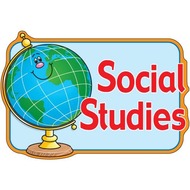
(View Complete Item Description)
The sections of articles about the U.S. Virgin Islands and Senegal have statements from two sets of authors. One article in each section is a general, inclusive statement written by a member of our curatorial staff.
Employing a point of view generally defined by Smithsonian imperatives for "the increase and diffusion of knowledge," the author engages in the characteristic practices of the Festival. These include: identifying and valorizing traditional cultural practices; explaining them primarily in historical, economic, and social terms; replying to popular stereotypes and supplanting them with empirically derived characterizations; representing geographically and historically bounded cultural wholes.
The other statements are written by authors from the geographic areas featured- the U.S. Virgin Islands and Senegal. These articles are more richly detailed. They address a variety of audiences, reply to a variety of implicit and explicit assertions, and are couched in a variety of styles. They have, of course, been solicited, selected, and edited - processes which are ineluctably based in our Institutional practice. We hope that in spite of this practice, and also in some degree because of it, these short critical pieces do incorporate a variety of voices speaking on noteworthy aspects of folklife.
In this sense, the organization of this year's Program Book represents the practice of the Festival as a whole.
The dialogue of viewpoints, understandings and of cultural styles strengthens the discourse of our national cultural Institution.
Material Type:
Lecture Notes
Authors:
National Park,
Smithsonian Institute




















